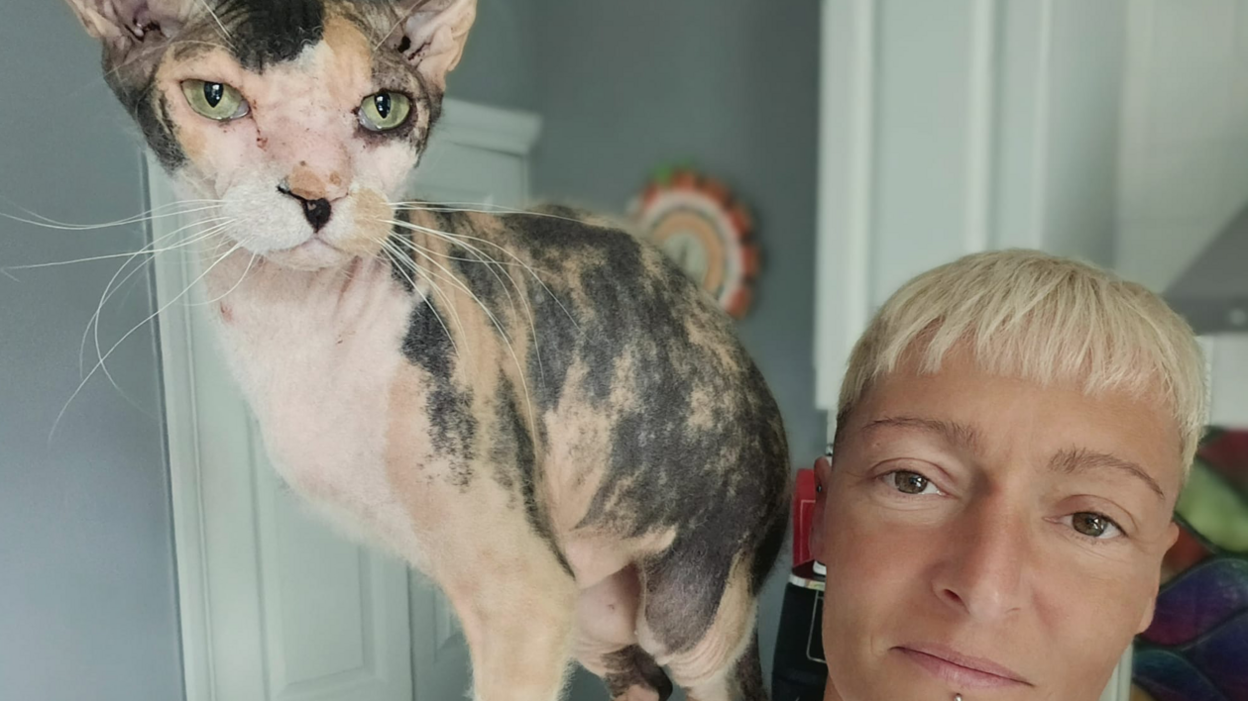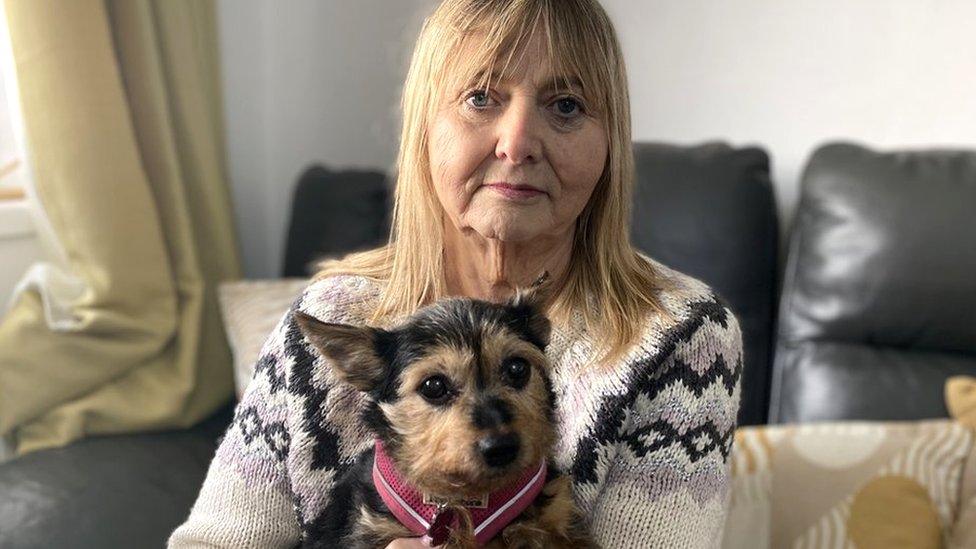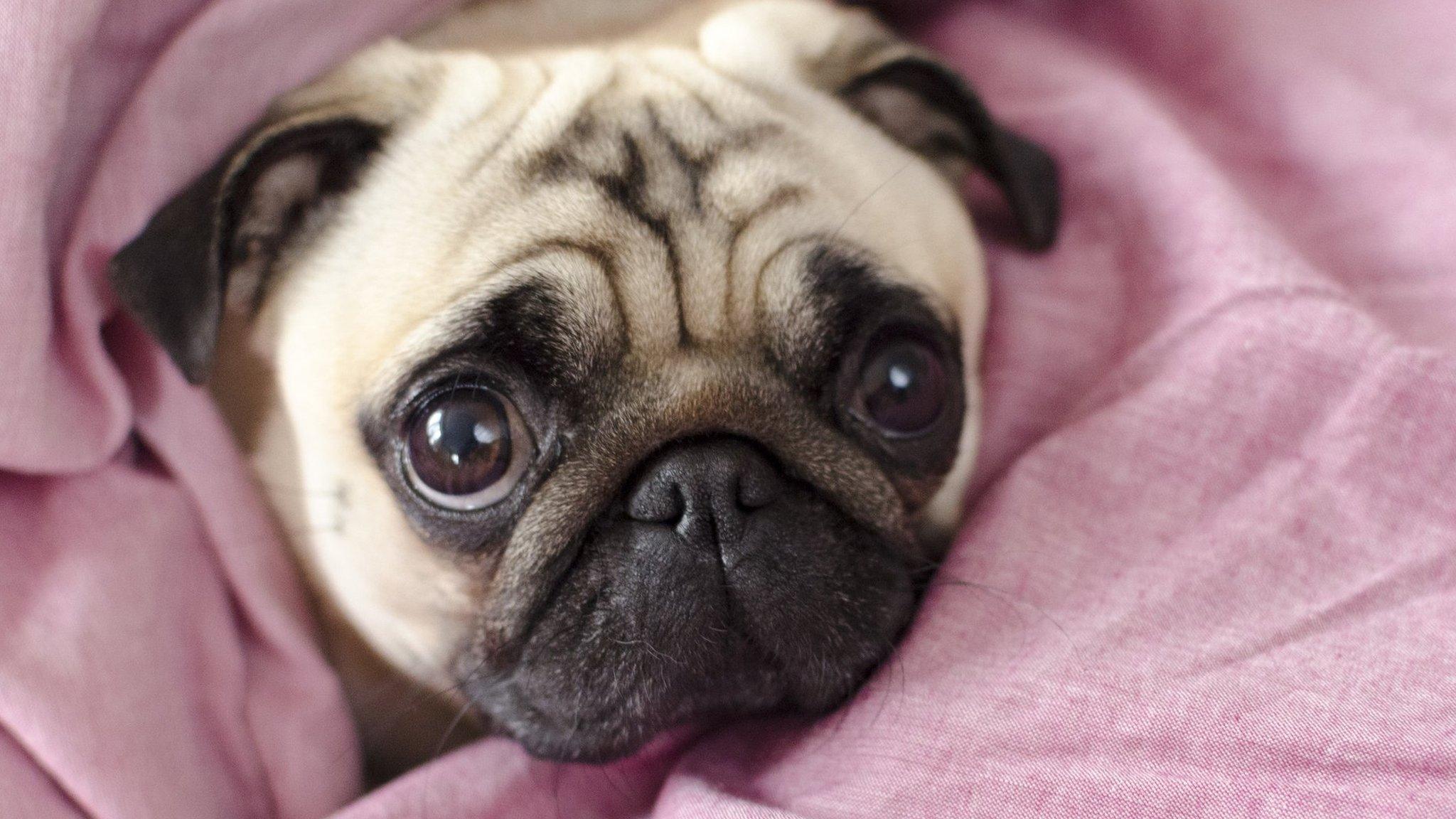Pet fraud victim's warning over 'vile' scammers

Angela replied to an online advert offering a Cavalier King Charles Spaniel for sale
- Published
A woman who paid a deposit for a dog after seeing an online advert and then faced demands for more money is warning others not to part with cash before seeing their new pet.
Angela, from Kent, said she had been suffering grief from the death of her dog when she paid the £80 deposit for a Cavalier King Charles Spaniel.
She never received the pet, or a refund, and was just one of the victims of pet fraud who have lost more than £7m in the last five years, the scam reporting service Action Fraud has estimated.
Angela said the scammers were "100% vile people" who target others "in a very vulnerable situation, having just lost a pet of your own and you're very upset".
Action Fraud said it had recorded more than 14,000 crime reports relating to pet fraud between 2019-20 and 2023-24.
One of the tactics involves fraudsters posting fake adverts and asking buyers to pay a deposit for an animal that does not exist.
"I knew not to pay a deposit before I'd seen the pet, but I was just so desperate at that time," said Angela, who does not want to be identified.
"They said they would deliver, but I don't think the dog existed. I needed to pay a deposit before I could see it.
"I was then advised that they would need another £120 for the vet to sign off and it was only at that stage I thought this is not quite right.
"They kept pushing and I refused to pay and when I tried to contact them again I was blocked. When I asked for my money back, I couldn't contact them any more."

Natasha McPhee, from Animals Lost and Found in Kent, says scammers are "heartless"
Natasha Mc Phee, from Animals Lost and Found in Kent, said she had become more aware of scam adverts since the pandemic.
"People are saying we have these pets, do you want to buy one? They say they will ship your pet to you, or they make excuses that they can't transport the animal, or you can't see the parents. They also put up fake pictures," she told BBC South East.
"It's highly distressing for the individual that gets scammed. It's really low because a lot of these people are vulnerable, they don't see it coming, but they have nothing to show for it - no animal and no money."

Rob Lilley-Jones from Which? said there had been a spike in pet scams since the Covid pandemic
Action Fraud said £7.2m in losses from pet fraud were reported from across England and Wales over the last five years, according to a Freedom of Information request by BBC South East.
Nearly half of the cases were recorded during 2020-21 at the height of the pandemic, when Covid restrictions were in place.
Rob Lilley-Jones, from the consumer organisation Which?, said: "As many of us spent more time at home during the pandemic, pet sales sky-rocketed and unfortunately, this also opened the door to scammers.
"Which? has heard of scammers who ask hopeful pet owners to transfer money before they’ve even met the pet or gone to pick it up - only to later find out the pet doesn't exist.
"It's important to ask to see the pet in person before you transfer any money and to make sure any transactions such as paying a deposit or the full purchase price for an animal are done face-to-face.
"If you’re spending over £100, opt to use a credit card, as you’ll have more rights to get your money back under Section 75 rules if things go wrong."
Most reports of pet fraud involved dogs and cats.
Claire Webb, acting director of Action Fraud, said: “Those looking to welcome a pet to their family could be a target for fraudsters looking to take advantage.
"If someone on social media, or an online marketplace, is selling a pet online, ask to view the animal in person or via a video call before paying any money."
She added: "Protect your money and do not pay a deposit or a holding fee without seeing if the animal is genuine first."
Follow BBC Kent on Facebook, external, on X, external, and on Instagram, external. Send your story ideas to southeasttoday@bbc.co.uk, external or WhatsApp us on 08081 002250.
- Published15 January 2024

- Published5 May 2020
